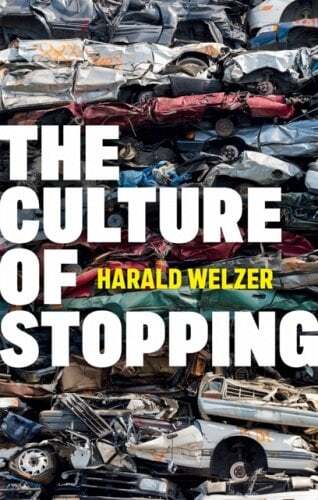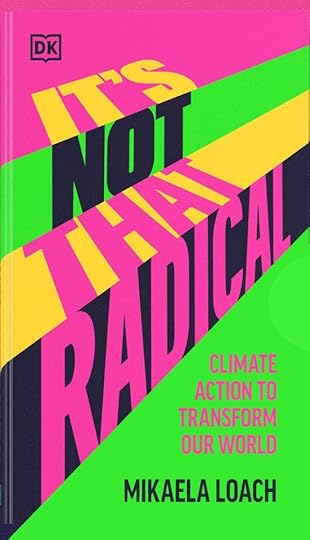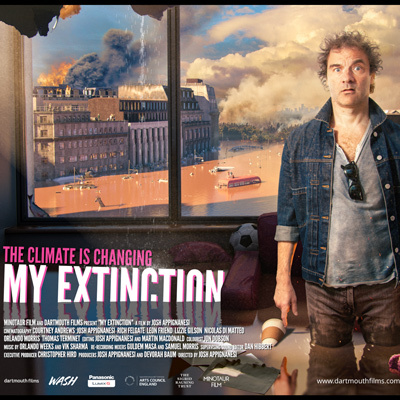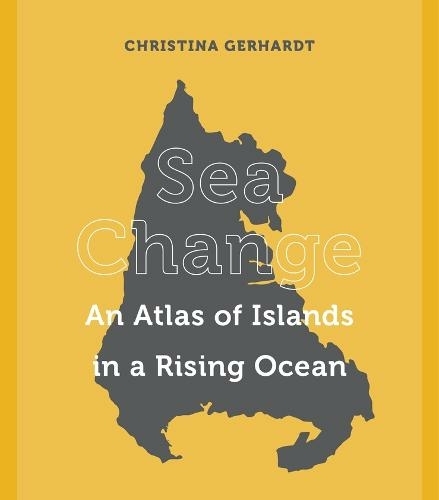Jeremy Williams's Blog, page 39
July 4, 2023
What if we could see carbon emissions?
I read a book a couple of years ago where the author imagined that CO2 emissions had a colour and were visible to the naked eye. (I think it was Arno Kopecky’s book of essays, The Environmentalist’s Dillemma, but I seem to have uncharacteristically mislaid my copy and I can’t check.) If you could see the pollution, he argued, we’d have fixed climate change long ago.
There’s a similar logic to this video from NASA, which I’m using in the Luton Youth Climate Conference today. They have visualis...
July 3, 2023
The Culture of Stopping, by Harald Welzer

Harald Welzer is a professor of sustainability and design at the University of Flensberg, Germany. In 2020 he had a serious heart attack that he was lucky to survive. Not least because he took a half hour walk to the doctor while having the heart attack, which is not recommended but does make for an exciting anecdote later for doctor and patient alike. If you survive.
This brush with his own mortality changed his thinking and inspired the book. “The whole project was prompted by my recog...
July 1, 2023
What we learned this week
The Guardian has published a beautifully presented feature on Tuvalu, and how it is creating a ‘digital clone’ of itself in order to protect its identity and heritage from the rising seas that are sweeping it away.
Groundswell is a festival of regenerative agriculture that happened not far from me this week, run ‘by farmers and for farmers’. I found out about it too late to attend, but it looks like a really useful learning opportunity and I’ll keep an eye out for it next year.
June 30, 2023
Where will all the offsets come from?
This week I’ve been thinking about global land use, as I’ve been preparing a workshop on that theme for an upcoming youth climate conference. It’s interactive and uses Lego, and I’ll have to tell you more about it another time. One of the key learning points for the young people who’ll be taking part is that there is growing pressure on land. Arable land is declining due to climate change and soil erosion, while a growing human population is adding to demand. Where do we find new land for growin...
June 29, 2023
Creating hydrogen at sea
Three years ago I wrote about a proposal to install an electrolyser in an offshore wind turbine and make hydrogen. It would allow offshore wind farms to produce gas instead of electricity, a fairly radical proposal. It was just an idea at the time, but three years later, something very similar has recently been achieved. The world’s first offshore hydrogen plant has just delivered its first gas.
Built by the company Lhyfe, the Sealhyfe platform is based near Le Croisic, off the French coast....
June 28, 2023
It’s Not That Radical, by Mikaela Loach

Here’s a book I’ve been looking forward to for a while – Mikaela Loach’s It’s Not That Radical: Climate Action to Transform our World. You may have come across Mikaela Loach, as she became quite a prominent climate justice activist a couple of years ago. She’s also a junior doctor, and now an author as well.
An interesting book it is too – a climate book with no science, no technologies. Kind of the opposite of the ‘white guy runs the numbers and tells us what must be done’ books that do...
June 27, 2023
Film review: My Extinction

What does it take to get people to act on climate change? That’s the question at the heart of My Extinction, an unorthodox documentary about an unlikely journey into activism.
In the opening scene, we meet film-maker Josh Appignanesi in the editing room and working on a car commercial. We hear about a feature film falling through, and while between projects, he idly drops in on Extinction Rebellion protests that are gathering on the streets of London.
Bit by bit he gets drawn in. Init...
June 24, 2023
What we learned this week
Sustainably caught tuna relies on a network of on-board observers. It’s a far more dangerous job than you might expect, with a pattern of observers dying or disappearing on the job under suspicious circumstances.
Finland is the country with the most advanced plans for dealing with nuclear waste. If it can ever be dealt with safely, it will be in facilities like Okiluoto Island. It’s taken 20 years and $1 billion to build it, deep under the mountain, and Erika Benke has been to see it.
Som...
June 22, 2023
Generating power from the water system
Last week I wrote about the carbon emissions from the water system, and how those emissions increase as climate change puts pressure on water supplies. As a follow-up, here’s an interesting solution highlighted by DW’s Planet A series on Youtube. They highlight how the water system can be used to generate electricity, through in-pipe turbines.
Not something I’d heard of before, but it’s been done successfully in a number of locations. What is particularly exciting is that perfecting this tec...
June 20, 2023
Book review: Sea Change – An Atlas of Islands in a Rising Ocean, by Christina Gerhardt

When I needed the atlas in my school library, I knew it would be in the reference section – the place you go to look stuff up, to get the definitive answer. So it’s strange to think of an atlas as something provisional and temporary. I suppose they always were, but more so in an era of climate change. Maps are being re-drawn. Coastlines are moving. Glaciers are retreating. Some places might cease to exist altogether, including some places that might vanish without ever really being widely kn...



